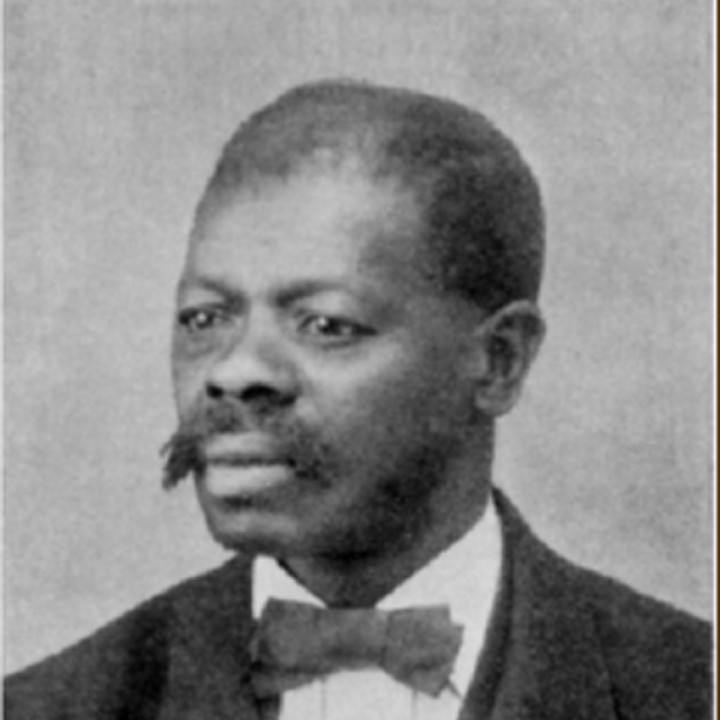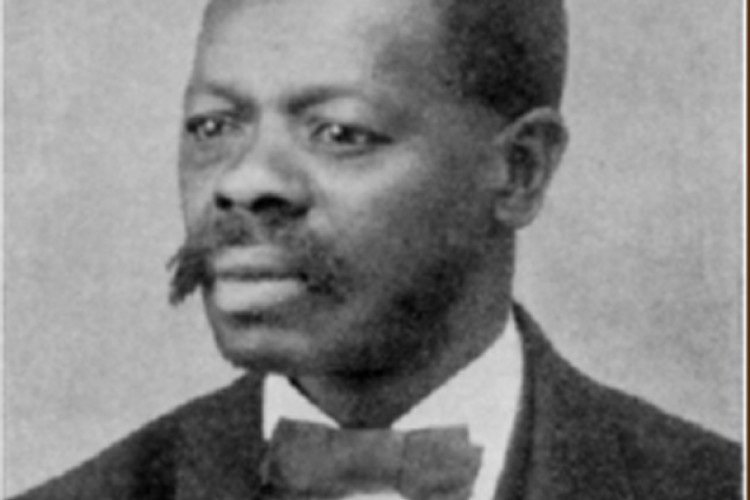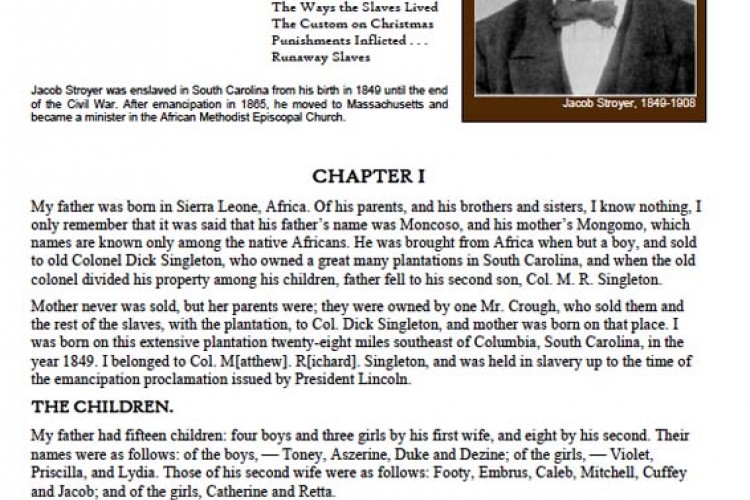
Jacob Stroyer
Childhood
Jacob Stroyer was born to enslaved parents on a plantation outside of Columbia, South Carolina, owned by Colonel M. R. Singleton. Stroyer’s father took care of horses and mules and, when Stroyer was old enough, he assisted his father.1
Natural Talent
From an early age, Stroyer realized he had a natural talent and affinity for horses. Singleton owned many horses, including two race horses, Captain Miner and Inspector. He entrusted them to Stroyer's care. Stroyer enjoyed caring for horses. He also trained, exercised, and broke them in. He writes, “I loved the business and acquired the skill very early, and this enabled me . . . to be accepted as a capable rider.”2
Perseverance
Stroyer’s early work with horses was not easy. In describing this time of his life, he wrote, “I passed through some very severe treatment . . . ”3 Stroyer was frequently beaten and otherwise maltreated by the stable's grooms. Singleton (the owner of the plantation) and his son Matthew were also brutal to the people enslaved on the property.4
Career End
Stroyer persevered and finally was permitted to ride in a trial race. Unfortunately, he never saw a career as a professional jockey. Though he rode Singleton’s horses “a great many times in their practice gallops,” he “never had the opportunity to ride them in a race before [Singleton] died.” With Singleton’s death, the horses were sold and Stroyer never rode or worked with horses again.5
Post-Horse Racing Career
Stroyer writes that his life’s “hardships and trials did not end with the race horses.”6 He worked in the fields and received training as a carpenter. He was sent to Sullivan’s Island and later Fort Sumter to build fortifications. During this time, Stroyer learned to read.
Seminary Education
After the Civil War, Stroyer described it as, “the yoke was taken from my neck.”7 He attended school in Columbia and Charleston, South Carolina. In 1869, he moved to Worcester, Massachusetts to attend seminary. He became a licensed preacher in the local African Methodist Episcopal church and an ordained deacon in Newport, Rhode Island.
Legacy
Stroyer moved to Salem, Massachusetts where he published his memoir in 1879. His memoir is the source of most information about his life. Stroyer preached in Salem at the African Methodist Episcopal Church until his death in 1908.8
Sources
Mooney, Katherine. Race Horse Men: How Slavery and Freedom Were Made at the Racetrack. Cambridge, Massachusetts: Harvard University Press, 2014.
Stroyer, Jacob. My Life in the South. Third. Salem: Salem Observer Book and Job Print, 1889. https://docsouth.unc.edu/neh/stroyer85/stroyer85.html.
Citation
When citing this article as a source in Chicago Manual of Style use this format: Last name, first name of Author. Chronicle of African Americans in the Horse Industry. n.d. “Title of Profile or Story.” International Museum of the Horse. Accessed date. URL of page cited.





